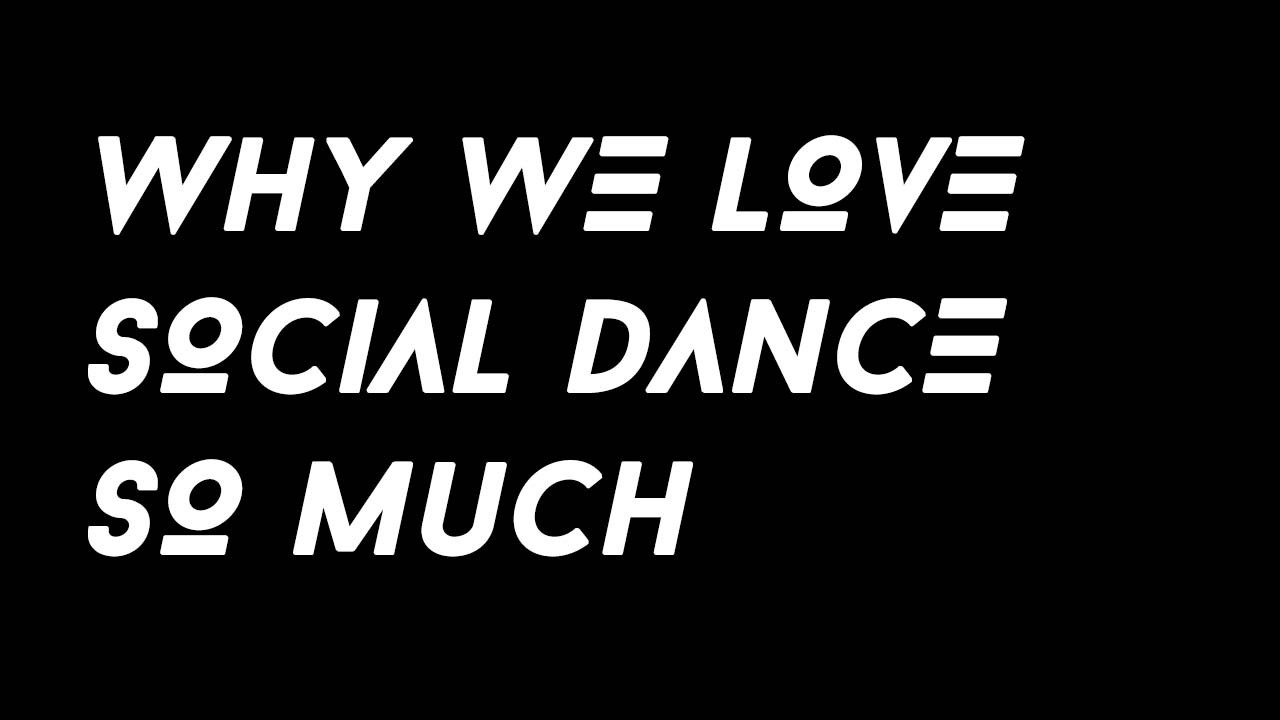Why We Love Social Dance

Humans have been dancing in one form or another for a very long time: ritualistic dances, celebratory dances, dances to seduce a partner, and many other reasons. Dance can be many things.
This is an excerpt from one of my books - "The Secrets of Social Dance - How to Become a Popular Dancer" which you can find on Amazon.
Sometimes we see dance on a stage. Sometimes we can see it on TV or on the web. Sometimes we see a dancer in the street trying to make money. These examples are all performative in a way. They are made to be seen or made to make money.
Social dance is different. We social dance only to enjoy the moment. We don't dance to show it for someone else. We dance for ourselves and our partner. We do it to relax and enjoy the journey we are on together. We do it to express ourselves to the music and to connect with our partner. To be truly present.
And with it comes a lot of benefits, which we will cover soon.
Social dancing is improvised and free. It is not very structured and has few rules around the actual dance. There are no judges around to give you points. It is not precise like a choreography. So, it might not be too strange if you feel a bit confused and unsure in the beginning.
But there are some rules for human behaviour that we follow. There are some more specific rules for social dance and some even more specific ones for some of the dances.
The focus in social dancing is on the dance and the social interactions going on around it. Quite often, we social dance in pretty small and tight-knit communities. The specific dances are not massive popular movements. People in these communities know each other. And this also means that there are social consequences if you misbehave. In general, people don't fight in dance socials. It happens in regular clubs, every so often. But in the social scene, I don't know if I have ever seen a fight. I would have to think hard. I can't remember anything right now, and I have danced socially for a long time.
Another difference is that in the social dance scene, people rarely get drunk. There is no focus on drinking. Dance is in focus. And you usually dance worse when you are drunk, even if we sometimes think the opposite.
I would guess that the general public doesn't know much about social dancing. Besides a few specific dances taught a bit in school in Sweden (mainly waltz and bugg - "Swedish Lindy Hop"), the general public here probably only knows about some Swedish folk dances. And they have probably just heard the names waltz, salsa, tango, and maybe lindy hop and foxtrot.
I guess it is the same in many other countries around the world. Many dances are totally off the radar. People don't know what they are. And, most of these dances and subcultures are pretty hidden. People don't know what is going on. They have no idea that there are communities around it in their own cities.
When someone enters a social dance scene for the first time, it is like entering a parallel universe. People don't know this exists, and it can be almost overwhelming. A new world is opening up.
And when they start dancing, all of a sudden, many people don't know what they were doing before, standing in a bar, going to a club, sometimes meeting random strangers with which they were having nonsense conversations. All that can seem pretty meaningless once we start dancing.
If I go to a more "normal" club, I start to get this itch within about 5-10 minutes. I get nervous, feel that it is boring, and I want to go dancing instead. It simply doesn't fill me with the same kind of joy.
And in festivals, even if you have danced for five or even 10 hours the day before, you still wake up the next morning and want to dance more. It can be hard to understand for other people when you explain it to them.
"So, you dance the whole weekend?" they ask.
And I say yes.
That is the life of a dancer. Yours too? Come on, say it with me: "Hello, my name is _______, and I am addicted to dance."
Have a nice day!
Suggestion - Check the kizomba, fusion, musicality and follow technique courses here.
Note: Commissions may be earned from the links above





